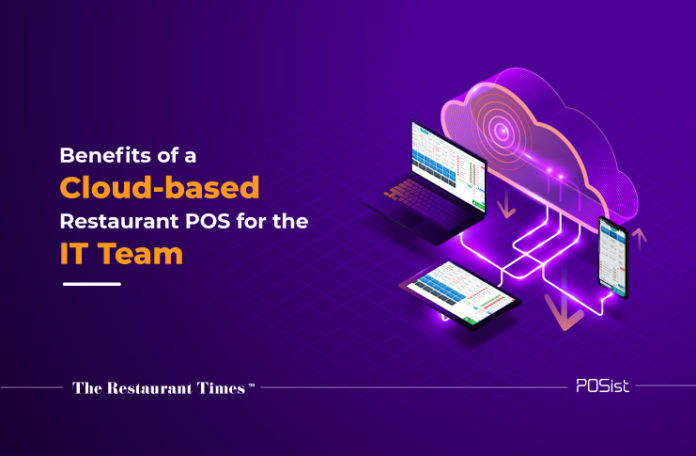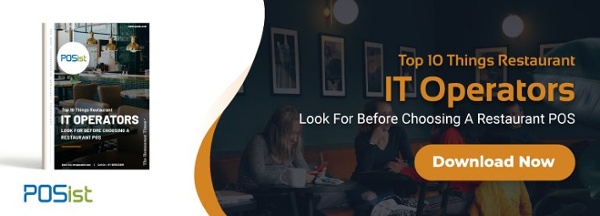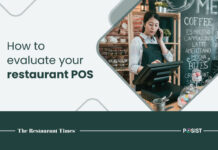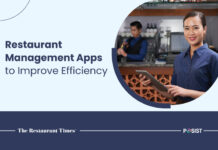Restaurants are highly dependent on their IT Teams for implementing innovations to meet changing demands. Compared to hardware-based POS systems, cloud solutions are far more reliable, secure, and offer a high level of automation. The costs associated with regular maintenance, multiple rounds of technical consultation, and long periods of downtime, further add to the challenges of managing restaurant operations. That is why restaurants are now choosing cloud-based POS software which has been designed to provide simple yet powerful solutions reliably and affordably. Whether you have an in-house or outsourced IT team, a cloud-based POS system has many advantages over traditional systems. This article provides in-depth insights on how a robust cloud-based POS system can streamline restaurant operations for the IT team.
Benefits Of A Cloud POS System For Your Restaurant’s IT Team
The shift from traditional legacy POS to cloud-based Restaurant POS indicates how different stakeholders from the restaurant industry have been benefited from this new age of automation. On the enterprise level, restaurant owners can lower operating costs with Cloud POS. It eliminates the need for regular hardware maintenance as the system resides online. Implementation of the cloud POS requires minimal IT expertise. Cloud POS systems reduce the need for hiring large back-end teams, dedicated IT infrastructure providing greater flexibility and redundancy to the restaurant’s IT managers.
i) Hardware- Agnostic
The implementation of cloud POS systems doesn’t require on-site servers. Implementing on-site servers requires substantial expenditure in terms of maintenance. Cloud-based POS systems can be accessed from any location at any time since they are internet-based. The cost of buying and maintaining expensive computer equipment and data storage devices is eliminated.
Unlike a traditional legacy POS, a case of a system crash or failure in the cloud POS doesn’t require any re-installation. Since the data is on a cloud platform, there is no issue of data loss, downtime, or delays.
ii) Easy Software Updates
The software in the POS systems is automatically updated when new features or software versions become available. They can also be customized as per the specific requirements of the restaurants. Cloud software has a large bandwidth to ensure a smooth flow of operations, without any lagging issues in the restaurant’s operations.
IT teams do not need to upload new software updates manually since cloud-based POS update automatically. These updates may either be scheduled in advance by the POS provider or may be carried out on an ad-hoc basis. Cloud POS requires software updates on just the central system. The updated software reflects automatically in all the other handheld devices.
Software updates run through test servers which are verified by the Quality Analysts. As the entire operational flow runs through a series of tests and approvals, the restaurant IT Team can ensure the smooth functioning of restaurant operations.
iii) Central Accessibility
With a centralized database, the IT team can access POS data at any time from any location. Important restaurant information such as the menu, creating and managing users, updating the taxes and prices, can be viewed and modified in real-time. There is no requirement to manually update the changes in the POS terminals or handheld devices. The changes or updates also reflect automatically on the website/ mobile app and integrated platforms. With central access to all the vital information, it is easier to extract reports, upload data, and audit information.
iv) Real-Time Sync Of Data
For the IT managers, it is important to merge the flow of data from all the platforms on a single system to provide a better understanding of the working of a restaurant. A cloud POS enables data sync on a central level. For large restaurants that run multiple terminals, information is synced on a central level which maintains an effective flow of communication. If the connection with the server is lost, restaurants can easily retrieve the data with the feature of offline sync.
v) Access To Information From Anywhere
A well-equipped cloud-based POS system gives you the freedom to manage the restaurant from anywhere. The storage of your entire data is hosted on a secure, remote cloud server that provides ease in accessing the data. Even a small IT team can check and monitor the performance data of a large chain of restaurants from anywhere, on any system or handheld device.
The feature of online and offline reporting streamlines the analysis of data. With a detailed analysis of reports, the business analysts can measure the overall growth rate of the restaurant. Restaurants can even outsource their IT needs to third-party providers located in a different state or country.
vi) High Data Integrity
In legacy POS, when the hardware crashes, retrieving data is impossible. Though Cloud POS is a hardware-agnostic system, the restaurants may face unavoidable network issues. Even in these scenarios, the billing operations are not hampered. The restaurant is able to effectively handle the billing management through the offline medium.
As soon as the system gains network, the offline bills that have been punched are synced with the real-time orders in the system. All the data from the offline transactions are automatically reflected in the daily sales reports without any data loss. Hence the analysis of the reports is not devoid of any information.
vii) Data Security
Maintaining a large database of information is prone to risks associated with the misuse of information. Cloud POS systems ensure that the management of data is backed with reliability and consistency. The IT Team can designate specific users who can access the information on the system. Each user has access to a separate database with a unique passcode. It eliminates the risks involved such as data breaches as the entire restaurant information is encrypted in both front and backend levels.
viii) Integrated Modules
Managing third-party platforms separately is time-consuming and inefficient. Third-party modules such as online food delivery, table reservation, loyalty programs, accounting software can be directly integrated into the Cloud POS. Direct integration into the system requires no efforts to manage multiple platforms on different devices. A consolidated dashboard integrates entire information from all the platforms. It eliminates the chances of creating inaccurate results with manual data inputs.
The changes made on the central level such as price updates, menu modifications, table availability, coupons, and offers for online food delivery, reflect automatically on the integrated platforms.
An ideal Restaurant POS uncomplicates the workload of the IT team. While choosing the POS system, check if it is adaptable to the specific requirements of your restaurant.
To know more about how a cloud-based POS is beneficial for your entire restaurant, contact us.



















